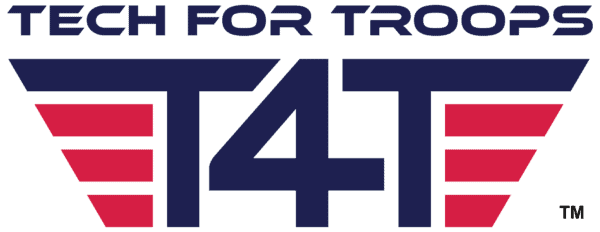After your military service comes to an end, going back to college can be a smart decision. It lets you set up for this new phase in your life, giving you valuable skills that can serve you well in the civilian world. Tech for Troops can set you up with the technology needed in this day and age to reach your goals. If you want to make this part of your professional journey easier, here’s what you need to know.
Going Back to College as a Veteran
Many veterans face unique challenges when they head back to college. Since most veterans have been out of school for some time, adapting to an educational environment can be a bit tricky. Logistically, college can be hard to navigate. You have much more control over your time than you did in the military, and that can be overwhelming.
Additionally, veterans may be older than other students, creating a sense of division. Similarly, most other students won’t have had experiences similar to their time in the military, and some may even harbor anti-military attitudes.
For veterans with disabilities, they may have a range of troubles relating to their conditions. Whether it’s PTSD, depression, physical impairments, or anything else, college may become a source of strain.
Thankfully, there are programs that can help. For those with disabilities, connecting with the school’s disability services office is wise. Additionally, many schools have Student Veterans of America (SVA) chapters, giving you a way to connect with other veterans and create connections with students.
Choosing the Right Degree
The degree you choose always matters. In some cases, you’ll want to find an option that aligns with your military experience.
One way to see what may fit is to use Google Jobs for Veterans. When you do that, you’ll see a window where you can put in your military occupation code (including your AFSC, MOS, or NEC rating). Once you see jobs that align with that occupation, you can research typical degrees that can help you advance in those careers, giving you a great starting point that also lets you leverage your experience.
However, you can also head into new territory if you prefer. If you want to earn a comfortable living, then you need to major in subjects with the most earnings potential. Some of the most lucrative degrees include:
● Accounting
● Business Administration
● Computer Science
● Engineering
● Finance
● Information Technology
● Nursing
● Statistics
In some cases, going forward and earning an MBA could be a great choice. With an MBA program, you can develop critical skills in accounting, economics, human capital management, and strategic planning. Plus, it can put you on the path toward exciting job opportunities, including operations director, business administrator, and general manager.
By going with an online MBA program, you also get plenty of flexibility. You can balance school, work, and family, allowing you to secure your future without sacrifice.
Paying for College
When it comes to paying for college, your GI Bill benefits are a great place to start. They are benefits you earned through service, so using them helps you get more value out of your military experience.
Scholarships are also an excellent resource when you need to find ways to pay for college without debt. Along with general academic or need-based awards, there are also scholarships for veterans specifically. With those, you may face less competition, potentially making it easier to secure extra cash to pay for the costs of college, including tuition, fees, and more.
Additionally, completing your FAFSA and submitting it to the schools you want to attend is essential. With that information, they can create your financial aid packet, showing you other options that may be available.
GUEST POST: Julia Mitchell is goal-driven to have a career that makes her excited to wake up every day. Now she is working in her dream job in a financial services firm.
